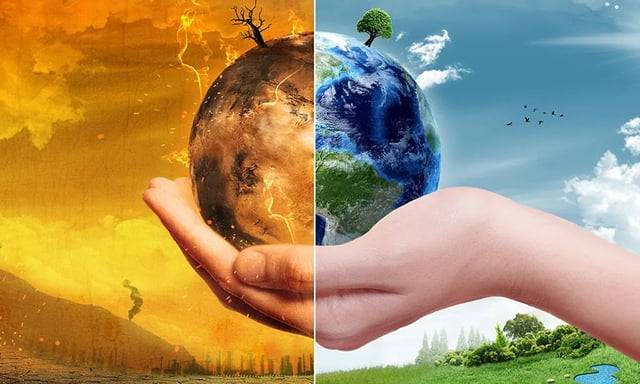Climate Change: A Pressing Global Challenge
Climate change refers to long-term shifts and alterations in temperature and weather patterns, primarily caused by human activities such as the burning of fossil fuels, deforestation, and industrial emissions. These activities release greenhouse gases like carbon dioxide (CO2) and methane (CH4) into the atmosphere, trapping heat and disrupting the Earth's natural balance. As a result, the planet is experiencing rising temperatures, melting ice caps, more frequent extreme weather events, and other environmental impacts.
The Science of Climate Change
The Earth’s climate system is driven by solar radiation, atmospheric composition, and the natural cycles of heat absorption and release. Greenhouse gases play a crucial role in regulating the planet's temperature by creating a "blanket" around the Earth that traps heat. While some level of greenhouse gases is necessary to maintain a livable temperature, human activities have drastically increased their concentrations, intensifying the greenhouse effect.
Since the Industrial Revolution, the level of CO2 in the atmosphere has risen by over 40%, contributing to a global temperature increase of about 1.2°C compared to pre-industrial levels. While this may seem like a small rise, even a slight change in average global temperatures can have profound effects on ecosystems and human life. Climate models predict that without significant reductions in greenhouse gas emissions, global temperatures could rise by 1.5°C to 2°C by the middle of the 21st century, pushing the planet closer to dangerous thresholds.
Impacts of Climate Change
One of the most visible effects of climate change is the increase in extreme weather events. Hurricanes, floods, droughts, and heatwaves are becoming more frequent and intense. For instance, higher temperatures lead to more moisture in the atmosphere, which in turn fuels more severe storms and floods. In contrast, regions experiencing droughts are seeing longer and more severe periods of dry conditions, impacting agriculture and water supplies.
Melting ice caps and glaciers are another key consequence of rising global temperatures. The polar ice caps in Antarctica and the Arctic are shrinking at an alarming rate, contributing to rising sea levels. As the oceans expand due to the melting of ice, coastal areas around the world are facing increased risks of flooding, erosion, and displacement of communities. Low-lying regions, such as small island nations and coastal cities, are especially vulnerable.
Biodiversity is also under threat. Many species are struggling to adapt to the changing conditions, and some are at risk of extinction. Ecosystems such as coral reefs, which are highly sensitive to temperature changes, are suffering from coral bleaching events due to warmer ocean waters. These changes not only affect wildlife but also human livelihoods, particularly in communities that rely on fishing, agriculture, and tourism.
Mitigation and Adaptation Strategies
Addressing climate change requires a combination of mitigation and adaptation strategies. Mitigation involves reducing the sources of greenhouse gases through cleaner energy production, energy efficiency, and the adoption of sustainable practices in agriculture and industry. Transitioning to renewable energy sources like solar, wind, and hydroelectric power is a critical step in cutting CO2 emissions.
Adaptation strategies focus on adjusting to the impacts that are already happening. This includes building infrastructure that can withstand extreme weather events, creating early warning systems, and managing water resources more effectively. Communities, especially in vulnerable areas, need support in building resilience to climate change.
Conclusion
Climate change is one of the most pressing global challenges of our time. Its impacts are being felt worldwide, affecting ecosystems, economies, and human health. However, the solutions exist, and global action is essential. By transitioning to a low-carbon future and enhancing resilience, humanity can mitigate the worst effects of climate change and build a more sustainable world for future generations.



No comments yet
Be the first to share your thoughts!